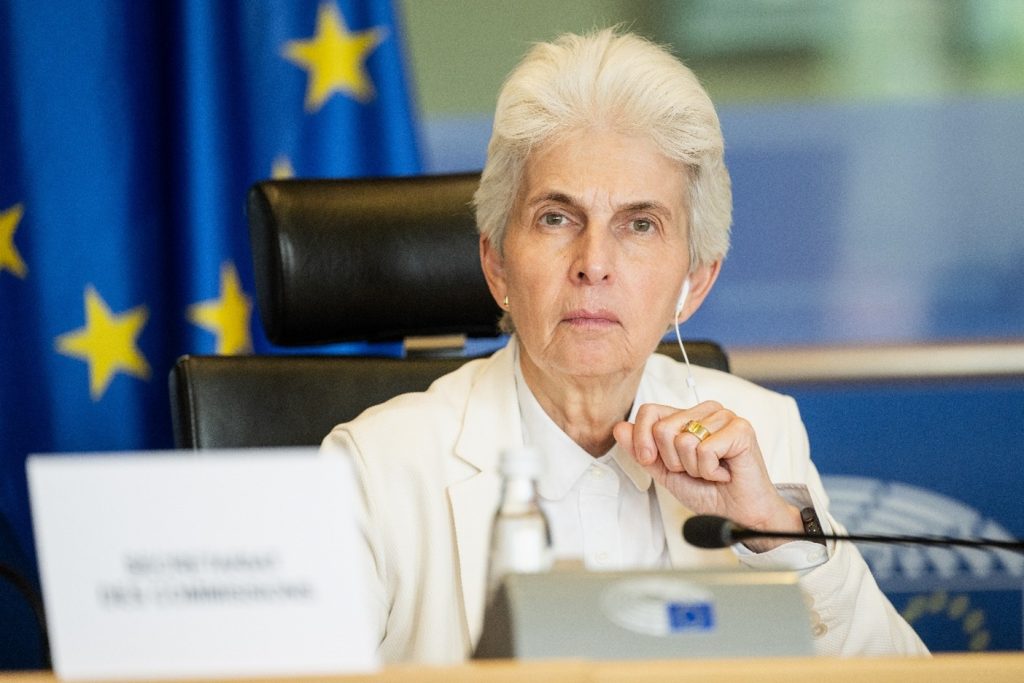We asked MARIE-AGNES STRACK-ZIMMERMANN MEP, Chair of the European Parliament’s SEDE committee, Brussels

HARTMUT BÜHL / NANNETTE CAZAUBON, European News Journal, Paris
In the fourth year of Russia’s war against Ukraine and 70 years after the first attempt to create a European Defence Community (EDC), which failed in 1954, the idea of a European Defence Union no longer seems taboo. Given Trump’s disinterest in Europe’s security and the obvious inability of the under-equipped European countries to withstand a possible Russian attack on the Union’s eastern frontline states, “the era of the peace dividend is long gone,” as European Commission President Ursula von der Leyen has declared. Indeed, something is shifting: since the beginning of the year, we have seen the Subcommittee on Security and Defence (SEDE) transform into a fully-fledged committee of the European Parliament, we have listened to Commissioner for Defence and Space Kubilius outline the White Paper on Defence – Readiness 2030, and President von der Leyen explain the ReArm Europe plan/Readiness 2030 package, which proposes legal and financial means to support Member States’ defence investments.
However, rebuilding a credible European defence requires massive investment over the years. How can the necessary money to finance it be found? What are the priorities for capacity building? And is the vision of a European Defence Union politically realistic?
![]() European News Journal (ENJ) asked Marie-Agnes Strack-Zimmerman MEP, first Chair of the European Parliament’s new Standing Committee on Security and Defence (SEDE).
European News Journal (ENJ) asked Marie-Agnes Strack-Zimmerman MEP, first Chair of the European Parliament’s new Standing Committee on Security and Defence (SEDE).
Ms Strack-Zimmermann, you are calling for a European Defence Union seven decades after the failure of the planned European Defence Community (EDC), for which it was probably too early politically, only nine years after the end of the second world war. Are the European states truly ready today to jointly develop the sensitive area of defence? What role does the SEDE committee, which you chair, play in this regard as a new full committee of the European Parliament?
M-A Strack-Zimmermann: Yes, Europe is ready because it must be. The Russian war of aggression against Ukraine has made brutally clear that we cannot rely on others for our security. The SEDE committee, now a full committee, plays a central role: shaping EU defence policy, scrutinising initiatives, and pushing for a European Defence Union that strengthens our strategic autonomy and ensures credible deterrence.
“Europe faces an acute and growing threat. The only way we can ensure peace is to have the readiness to deter those who would do us harm. We have many strong foundations such as our potential to unleash vast resources and latent technological and industrial power. But we are also starting from a position in which our defence readiness has been weakened by decades of under-investment.”
White Paper for European Defence – Readiness 2030
Reading the White Paper on Defence is quite frightening: Europe lacks almost all the capabilities necessary for its defence, even with the United States. Where do you see the priorities for capacity building?
M-A Strack-Zimmermann: The most urgent gaps concern air defence, ammunition, and long-range systems, to name a few. But beyond individual capabilities, Europe needs to increase its industrial responsiveness. That means better planning, more coordination among Member States, and real investment in a stronger, more integrated defence technological and industrial base.
“Beyond individual capabilities, Europe needs to increase its industrial responsiveness.”
On 28th May, the Commission launched SAFE (Security Action for Europe), a new EU financial instrument that provides Member States with up to €150bn in loans backed by the EU budget. What are the strengths of this programme aimed at helping European countries to boost their key capabilities in defence – like missile defence, drones, and cyber security – through joint procurement? Will it lead to greater standardisation and technological progress?
M-A Strack-Zimmermann: SAFE offers an incentive to strengthen joint procurement and reduce fragmentation, which is a step in the right direction. But expectations should remain realistic. Its success will depend on uptake by Member States, coordination, and the ability to deliver added value. It will also require full transparency and strong parliamentary oversight to ensure effectiveness and accountability.
Marie-Agnes Strack-Zimmermann MEP has been a Member of the European Parliament since June 2024. She was elected chair of the Committee on Security and Defence (SEDE) after the committee was upgraded to a full-fledged body in December 2024.




